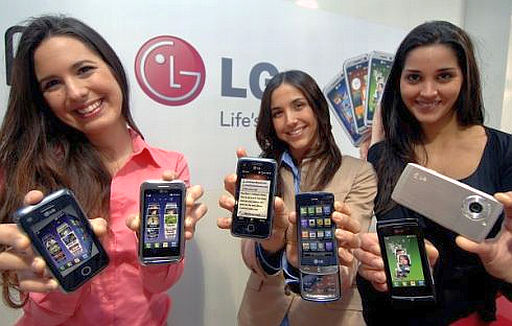No, Bruceongames isn’t turning into a Smartphone blog. It is just that it is pretty clear that smartphones are soon going to be the most common computers on earth, with over a billion a year being sold. Which means they will be the most common gaming devices. So if you have anything to do with gaming then you need to know about smartphones.
This week it is the 2010 Mobile World Congress in Barcelona, the world’s largest mobile technology fair. Things are getting critical now as manufacturers, operating systems and browsers jockey for position ahead of the big explosion.
The big news is that Nokia, who make 40% of the world’s smartphones, won’t be there.
The next biggest news is that that Eric Schmidt, the CEO of Google, is giving the event’s keynote address. His Android operating system is the fastest rising star of the smartphone firmament. This is vital for Google as web traffic, and the advertising revenue that goes with it, moves away from the desktop and onto mobile devices. There are going to be more than 50 new Android phone models announced at the show from manufacturers such as HTC, Samsung, Motorola, Dell, and Sony Ericsson. Also Android is developing very rapidly with Swype word input, voice recognition and lots of location based services all on the way.
Also addressing the conference is Steve Balmer, CEO of Microsoft, who have lost their way in the mobile marketplace. He is there to launch Windows Mobile 7, which is going to be called just Windows Phone. Microsoft need this to be very special as they are drinking in the last chance saloon here. The good news is that the interface is based on Zune (maybe they are reading this blog!) and more good news is that Microsoft are going to lay down the law regarding handset specification so that Windows Phone doesn’t end up on any dodgy devices.
The war just now is between the handset manufacturers and between the operating systems. New developments are almost alarmingly fast. Because these devices are online their operating software can be and is constantly updated to try and keep up with or maybe even ahead of the opposition. Handsets that are a year old are virtually obsolete. Take out a two year contract and you will be using a museum piece by the end of it.
But it isn’t the handsets and the operating systems that will make all the money. Just like with your desktop PC, the handset manufacturer will become increasingly irrelevant. Also the operating system on its own will generate little revenue and people will replace their operating system on a whim, much as they now do with PC web browsers.
The real money will be in advertising (and other marketing) and applications. Our current best effort at smartphone applications, the application store, is close to being a broken business model as price has collapsed and piracy run rampant. Expect more and more applications to be offered as services, with subscriptions. And we know all about that in the gaming world, just look at World of Warcraft and Xbox Live.

Permalink
You say
“people will replace their operating system on a whim, much as they now do with PC web browsers.”
Why do you think that the mobile operating systems will model PC web browsers and not PC operating systems. In my experience developing for every major web browser is relatively easy compared to developing for multiple phone operating systems. I think that this means there will be more operating system lock-in on the mobile platform as consumers find their set of applications they can’t live without.
Permalink
“as consumers find their set of applications they can’t live without”
Mobile apps tend to very simple, replicable and don’t really have much of a learning curve. There are no apps that people can’t find replacements for. PC apps require a long time to learn and that is why people get locked in.